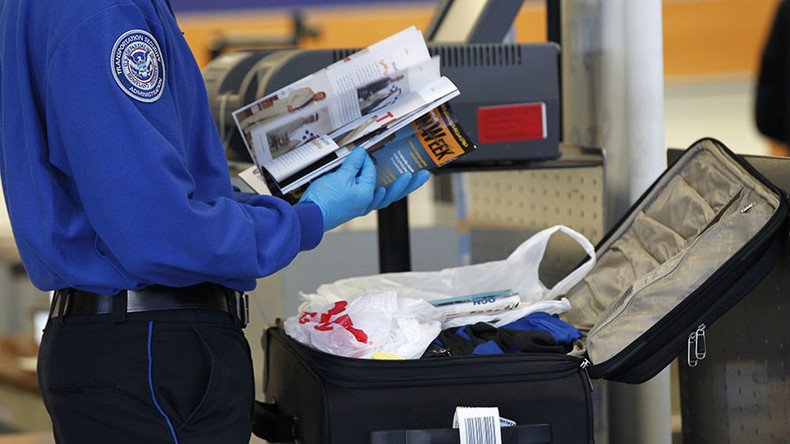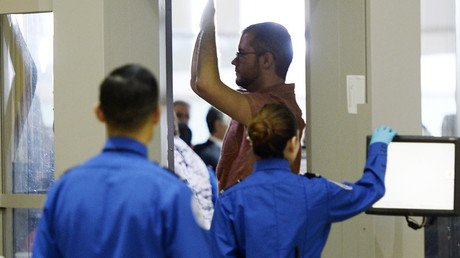Leave your laptop in the bag: TSA to use CT scanner for carry-ons

Seeking to speed up security lines at US airports, TSA is turning to automation. Computers are going to scan carry-on luggage at one Arizona airport, while several major airports around the country will be outfitted with “smart” bins, the agency has said.
One checkpoint at Phoenix Sky Harbor International Airport will be outfitted with a computed-tomography (CT) scanner by the end of the year, the Transportation Security Administration said Tuesday. It will be the first CT scanner for carry-ons in the US.
Meanwhile, TSA is partnering up with American Airlines to outfit airports in Chicago (O’Hare) Dallas/Fort Worth, Miami and Los Angeles with automated security lanes that would free the agency’s personnel from manually shuffling the bins used for personal items. Delta Airlines donated the funds to set up two such lanes at Atlanta’s Hartsfield–Jackson International Airport in May, helping ease the congestion at the world’s busiest air travel hub.
The scanners and the automated lanes will speed up the lines by about 30 percent, according to TSA estimates.
“Our foremost priority is the security of the traveling public,” TSA Administrator Peter Neffenger said in a statement. “To ensure that we remain up-to-date in an evolving threat environment, TSA continues to test and deploy state-of-the-art technologies. This collaboration with American Airlines is an important step in enhancing the traveler experience while maintaining effective security.”
American Airlines will invest $5 million in the improvements, the airline’s Chief Operating Officer Robert Isom said in a letter to employees. Neither the automated lanes nor the CT scanners will solve all of the security problems, but they are “both huge steps in the right direction,” Isom wrote, according to AP.
CT scanners are already used to screen checked baggage, generating 3-D imagery that is analyzed by computers. Security officers only get involved when the scanning software detects any anomalies. Using the technology to manage carry-ons might allow travelers to leave liquids and electronics in their bags, speeding up the lines even more, AP reported.
One of the advantages of the automated lanes is that suspicious bins can be sent to a different area for additional screening, without holding up the entire line. Bins used to store travelers’ personal items are also outfitted with radio-frequency (RFID) tags for better tracking.
TSA processed 10.7 million travelers over the six days prior to the July 4 holiday, Homeland Security Secretary Jeh Johnson said, with last Thursday and Friday the busiest days since 2007. The average wait time was less than 10 minutes, Johnson added.
LIVE UPDATES: The casualty count has grown to at least 60 injured #istanbul#ataturkhttps://t.co/ryzG3th4Otpic.twitter.com/5RFC2yjyKc
— RT America (@RT_America) June 28, 2016
Last year, bowing to pressure from Congress, TSA promised to prioritize security over efficiency at airport checkpoints. Between that and employee attrition, the agency has had difficulties handling the record number of air travelers this year. After the June 28 attack at Istanbul’s Ataturk Airport, however, security experts have pointed out that long lines at checkpoints themselves represent an easy target for terrorists.













